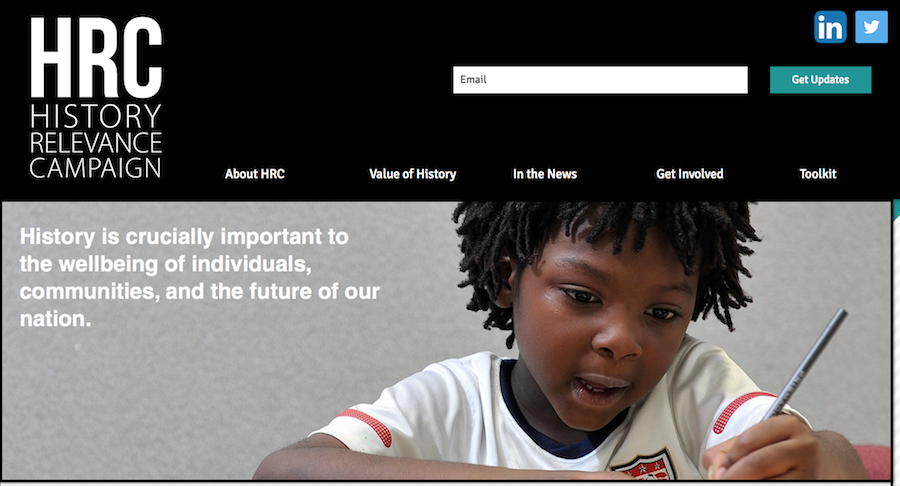Historians' latest effort to win over the public
The National Archives hosted the second History Relevance Campaign (HRC) meeting with Washington D.C. area history organizations on Monday, October 17. David Ferriero, Archivist of the United States, welcomed the group of nearly fifty representatives from organizations ranging from the Smithsonian Institution to state historical societies and academic associations to the National Endowment for the Humanities, and he expressed his enthusiastic support for the work of the HRC in elevating history at the local, state, and national levels. The National Archives endorsed the HRC’s Value of History Statement this past spring, joining the 150 other organizations and groups who have endorsed it.
The HRC is the nearly four-year-old effort of a diverse group of history professionals working to raise the profile of history in American society. The HRC recognizes that history organizations are not always as articulate as they need to be in demonstrating their relevance, which leads to diminished support, both public and private. The history professionals who make up the HRC seek to remedy this problem by making the public more aware of the value of history through their advocacy efforts and by providing history organizations and groups with the tools they need to effectively articulate their work and successes.
During the May HRC meeting hosted by the Smithsonian’s National Museum of American History, participants agreed that helping history organizations demonstrate the value of their programming should be a priority of the HRC. To that end, the Steering Committee, made up of representatives from fifteen organizations, began work on the Common Metrics project, which then was the focus of the October 17 meeting.
Many of the attendees at that meeting were from organizations that had participated in the May meeting. Also in attendance was Tim Wisniewski of LINK Strategic Partners, which is providing the HRC pro-bono marketing assistance.
Attendees spent the bulk of the day-long meeting discussing the “Common Metrics – Assessing Our Work with the Values of History” project, which will ultimately provide history organizations with tools to more effectively demonstrate to stakeholders and funders their impact on both individuals and their communities. Randi Korn of Randi Korn and Associates and steering committee member Conny Graft of Conny Graft Research and Evaluation laid out a framework for the proposed project, which consists of using the seven values articulated in the Value of History statement or the HRC impact statement as the basis for creating tools to assess impact. Participants were enthusiastic about the prospect of such tools being made available and offered the HRC feedback on how the project could be nuanced to be broadly useful for a wide range of history organizations, groups, and programs. The group also discussed possible funding options and timetables.
The October 17 meeting also featured a presentation by Kelly Osborn on NARA’s newest initiative—the History Hub, a web-based, crowd-sourced history resource. The History Hub allows users to ask and answer questions related to research. For more information on the History Hub and to participate, please visit http://history.gov.
Participants were invited to explore NARA’s new exhibit “Amending America,” a look at both proposed and enacted amendments to the U.S. Constitution. Curator Christine Blackerby provided a behind-the-scenes look at the artifacts on display as well as information about the creation of the exhibit.
For more information about the History Relevance Campaign, visit historyrelevance.com. We encourage all history organizations to consider endorsing the Value of History statement and to start using its language with their many audiences. The HRC also seeks volunteers to join its task forces and to offer suggestions for new projects.
